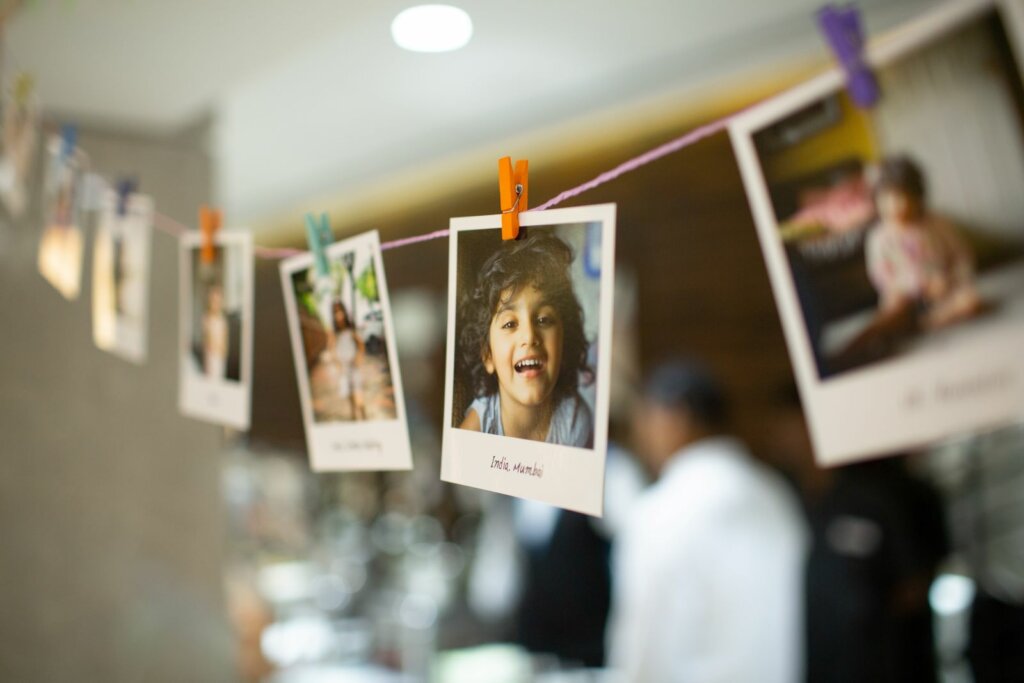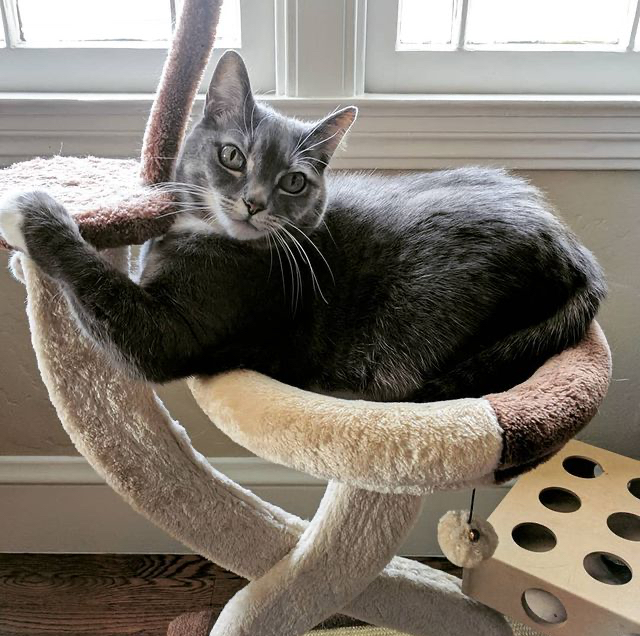On Saturday, I visited my old San Francisco neighborhood for the first time in years. It was weird to compare what it used to look like to what it looks like now. It was also strange to be there and remember the person I used to be. My friends asked me if I missed living in the city, and the truthful answer is no.
It’s funny because in 2012, when I began my period of moving on average every three months for three years, I cried buckets over no longer being in SF. It was a heartbreak on par with a breakup. I’d spent ages longing to move to San Francisco, dreaming about it, imagining what my life would be like, and then when I arrived, it was the culmination of a dream. I loved being in the city. I loved the convenience, the ease, the energy. I woke up every day grateful I lived in San Francisco.
And then, the universe basically forcibly removed me. My dream became a nightmare. My building put up scaffolding to paint the exterior, and I kept telling management I was worried someone would break in. And guess what? They did! Not to my apartment, but still. And then, because of the paint job, my windows were covered so I couldn’t even see outside, and barely had any sunlight. Add in not sleeping through the night, and it was truly a waking nightmare.
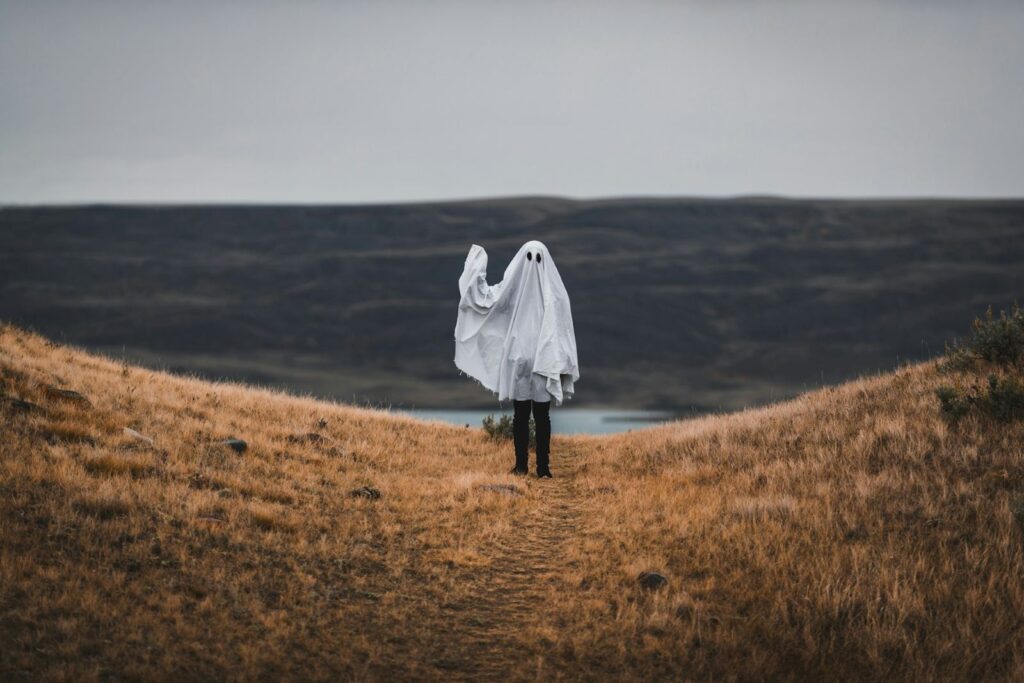
Hello past self. Photo by Tandem X Visuals on Unsplash
I left SF, but I wasn’t happy about it. I wrote poems about it, longed for the life I had, but kept moving forward. And now, I’m so changed that whenever I return to my old neighborhood, it’s like those feelings, that life, belonged to someone else. It’s like I’m confronting the ghost of my past self. That makes sense given what my spiritual teacher has to say about death and change.
He says, “A 5-year-old child is transformed in due course into a 15-year-old boy. In 10 years, the child becomes the boy. Thereafter, you will never be able to find the body of the 5-year-old child. So the child’s body has certainly died.” He then goes on to mention the boy growing into a man, and then hitting middle age, then old age, until he finally dies and says, “The rest of the changes we do not call death; but in fact, all the changes qualify as death.”
All the changes qualify as death because the person who used to exist cannot be found anymore. That’s me. I have died many times and will do so again. And it’s true for all of us. We’re constantly undergoing a metamorphosis. We’re constantly dying and being reborn. We all have many “ghosts” walking around. The people we used to be, and aren’t any longer.
Normally, I’d feel sad or tender about that, but it can also be something wistful or neutral. I have gratitude and appreciation for my past self, for the young woman who so desperately wanted to move to San Francisco and did. But I’m not that person anymore. These days, I have new dreams, new desires, and new selves to meet. And I’m sure that one day in the future, I’ll look back and think of this current self as a ghost, too.
I dream of a world where we recognize change is constant, not only in the world but in ourselves. A world where we understand that we will all die many times while we live. A world where we recognize there are many ghosts of our past selves walking around.
Another world is not only possible, it’s probable.
Francis Weller writes in his book The Wild Edge of Sorrow that on a trip to Burkina Faso, he remarked to one woman that she had a lot of joy. Her response was, “That’s because I cry a lot.” I keep thinking about that because I notice sometimes the people who are the most joyful, vibrant, and alive are also the most depressed and even suicidal.
This is on my mind because a friend of mine died suddenly about a week ago and I suspect it was a suicide based on the abruptness and also how his family hasn’t mentioned the cause of death. But just in case I’m wrong, I’m not going to name him publicly and instead write about someone I can: Robin Williams.
If you’ve seen any movies or interviews with Robin Williams, you know he was a wacky delight. Julie Kavner, best known as the voice of Marge Simpson, said in a Guardian article, “When we were making Awakenings, we were filming in the deserted part of a mental hospital, and often shooting through the night. And there was this TV in the corner on mute, and Robin, between breaks during the scenes, would go off on a riff, inventing dialogue on the TV show, entertaining everyone at 3 a.m., whatever time. It was a very tough role that he did a phenomenal amount of research for, but he didn’t keep to himself between takes – he was out there, giving to everyone.”
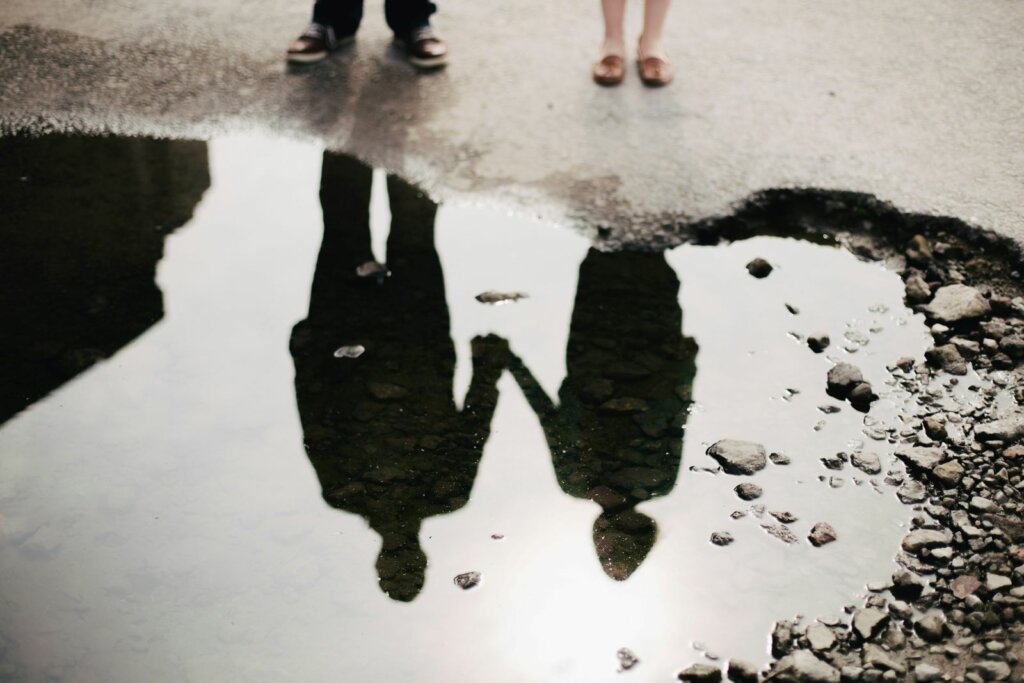
I hope you are held like this. Photo by The HK Photo Company on Unsplash
Williams was the life of the party and yet he committed suicide, shocking everyone. It turns out he had a form of dementia that essentially caused his brain to fall apart so who knows how much was the disease versus depression but even still. This man who was so capable of bringing joy to others suffered so greatly that he decided he couldn’t keep living. I have trouble wrapping my mind around that and posed the question on Facebook about the dichotomy.
One person responded that she was often the life of the party because she was compensating for depression. She was trying so hard not to be depressed, to not show people how low she felt that she put on a mask to hide it. But she also said she wished more people would talk about how they felt to normalize it, to know they don’t have to hide.
I can’t say this to my friend or to Robin Williams, but I can say it to you. I know what it’s like to be in the shadows and also the light. I’ve traversed both spaces and there’s nothing wrong with either. You don’t have to hide or pretend with me. You can take off your mask and let me know how you’re really feeling because I’m not scared to hold space for whatever is alive in you. Human beings are complicated and complex. Every part of you – the parts you’re proud of, the parts you’re ashamed of, the parts you’re scared of – all of them are welcome whether you share them with me or not.
Weller says, “Life is hard, filled with loss and suffering. Life is glorious, stunning, and incomparable. To deny either truth is to live in some fantasy of the ideal or to be crushed by the weight of pain. Instead, both are true, and it requires a familiarity with both sorrow and joy to fully encompass the full range of being human.”
I seek to encompass the full range of being human and that means I’m holding both light and shadow because I know neither can exist without the other.
I dream of a world where we take off our masks and express how we truly feel. A world where we recognize people want to know the real us, warts and all. A world where we remember authenticity is usually met with care. A world where we know both light and shadow exist in all of us and being human means holding both.
Another world is not only possible, it’s probable.
A former therapist and coach told me once that grief can feel pleasurable in an unexpected way because every other emotion is heightened. You’re sad but also recognizing the transience of life and because of that transience, strawberries taste sweeter and time with loved ones is more precious. When he said this to me, I told him he was off his rocker because there was nothing pleasurable about grief but now I see what he meant.
We’re theoretically in the “happiest time of the year,” but against the backdrop of the holidays with the sparkly lights, sappy movies, and festivities, I’m sad. I’m grieving the loss of people I knew well and people that I didn’t. In the background, there’s a refrain that so-and-so isn’t here anymore and so every moment becomes more precious because I know in my bones that tomorrow isn’t promised. Grief shakes me from the dream where I think I know how anything will play out. I don’t. I really, really don’t.
My former therapist is right. My heart, it hurts. It’s squeezing in my chest and feels tender and fragile. And yet, because of the pain, there’s also more pleasure because when I come across delightful things, they are more delightful. A father and daughter were on the same Bart train as me to the airport, and then on the same flight to Seattle, and then they also took the Seattle light rail and sat next to me on that train. I watched the daughter swinging from the rail above her head as if it were monkey bars and smiled.
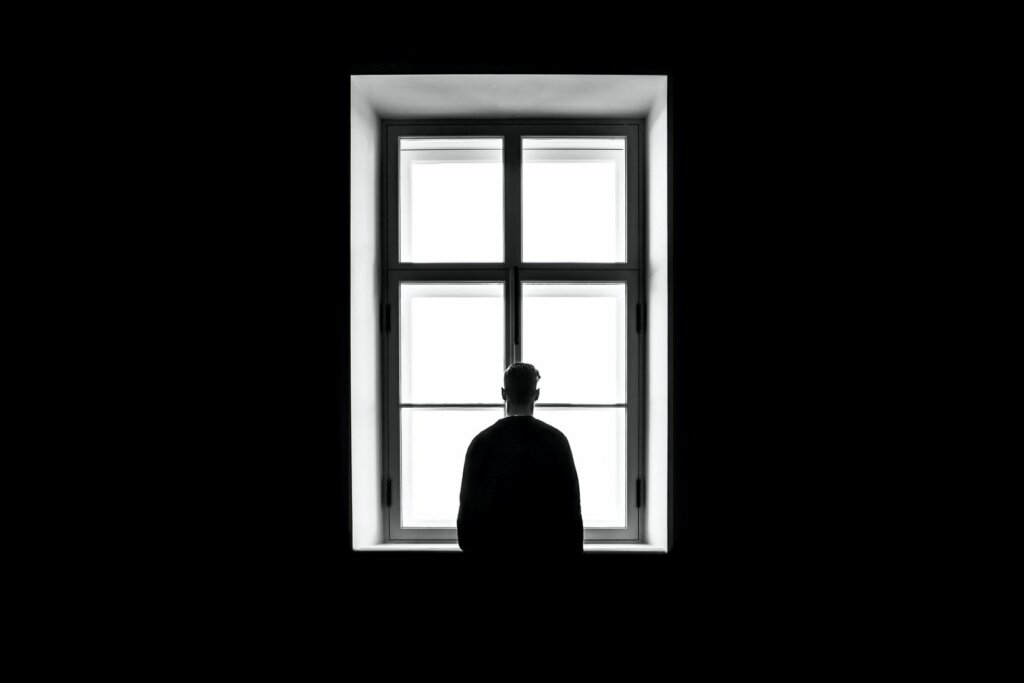
Darkness and light are paired together. Photo by Sasha Freemind on Unsplash
I look at the birds nibbling seed from the feeder outside my parents’ window and say, “Wow. You’re so beautiful.” The sun seems to shine brighter, flower colors are more vibrant, and everything is amplified right now because death is also so present. I’m hugging my parents a little tighter, a little longer, aware that our time together is limited.
Rashani Réa speaks to this in her poem, “The Unbroken:”
There is a brokenness
out of which comes the unbroken,
a shatteredness
out of which blooms the unshatterable.
There is a sorrow
beyond all grief which leads to joy
and a fragility
out of whose depths emerges strength.
There is a hollow space
too vast for words
through which we pass with each loss,
out of whose darkness
we are sanctioned into being.
There is a cry deeper than all sound
whose serrated edges cut the heart
as we break open to the place inside
which is unbreakable and whole,
while learning to sing.
I didn’t think it was possible, but sorrow is amplifying joy because the dial has been turned up in my life. I’m just as likely to burst into tears as I am to burst out laughing. I feel a little unhinged, a little uncontained because I am. Something has been broken open and at the moment I am painfully, exquisitely alive.
I dream of a world where we hold our grief and our joy with tenderness. A world where we recognize sometimes sorrow leads to joy because we’re aware of how fleeting everything is. A world where we absorb the preciousness of where we are right here, right now because we recognize this, too, shall pass.
Another world is not only possible, it’s probable.
Death is strange. You already know that but I’m stating it again: Death is strange. There are people who seem like they’re on their deathbeds, who you’re sure only have a few months to live who wind up sticking around for another five years. And then there are people who are young, who you think have another 40 years left, that die suddenly. Death is always a shock but it’s the sudden ones I have the most trouble processing. It reminds me of that passage from Macbeth:
Out, out, brief candle!
Life’s but a walking shadow, a poor player,
That struts and frets his hour upon the stage,
And then is heard no more.
It is so very painful to take in that you won’t hear a person anymore. You won’t see their posts on Instagram. They won’t encourage you to donate to their charity run. They’re just … gone. At least in their current form. My spiritual teacher says, “This expressed universe is nothing but a collection of temporary entities which are undergoing constant metamorphosis according to the sweet will of nature.”
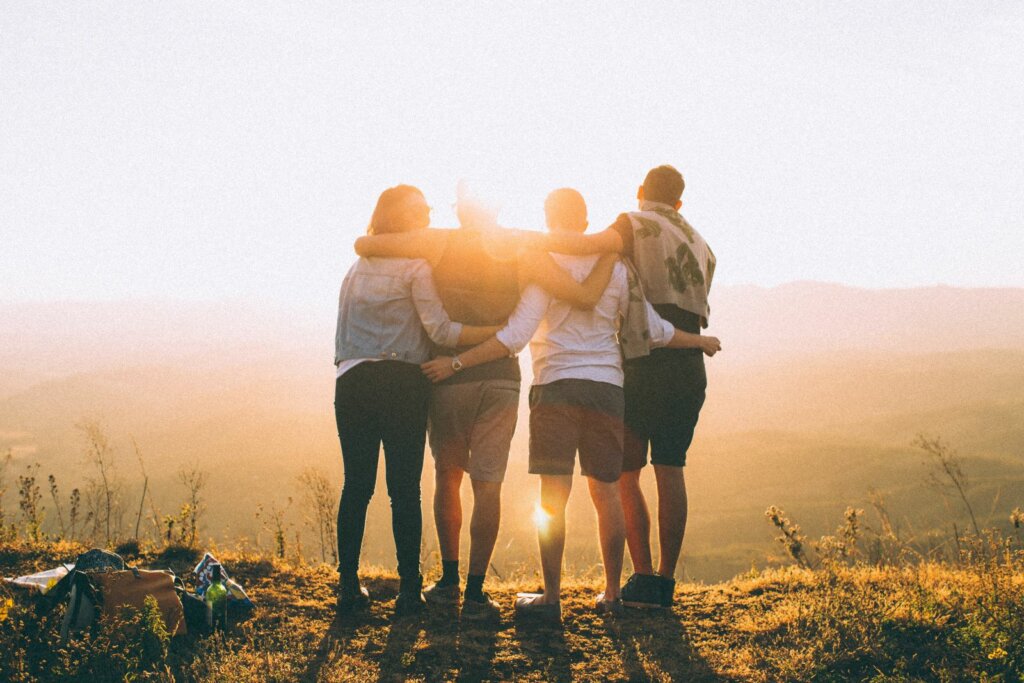
We all matter. Photo by Helena Lopes on Unsplash
We’re all undergoing metamorphosis, energy isn’t created or destroyed, so the person is still there but also not there and I’m sad about it. In my life, I’m mourning the sudden death of Matt Peter. I didn’t know him well, we didn’t chat on the phone, but what I did know is he was a good man. He genuinely tried to make the city of Albany, New York, a better place. He was a local politician who cared tremendously about his constituents and days before his death he participated in a charity run. That man showed up and he tried.
He approached politics with zeal like it was his mission in life, which tracks with what we say in my spiritual tradition. One of our tenets is that a person will merge in Cosmic Consciousness only after completing the duty assigned to them by Cosmic Consciousness. The trouble is, there’s no sand timer in the sky letting us know when the sand has run out. The person is there and then they’re not.
Some people worry about their legacy. They wonder how they’ll be remembered once they’re gone, if they made a difference, if anyone will think of them. I take comfort in that Carl Jung quote that says, “The meeting of two personalities is like the contact of two chemical substances: if there is any reaction, both are transformed.” If there was any reaction, you made a difference. You’ll be remembered. You mattered.
I’m not going to tell you to seize the day, to live life to the fullest, or any of the other platitudes we hear so frequently after someone dies. Instead, I’m reminded of that game where you stand in a circle and hold a piece of yarn while also throwing it to someone else in the circle. In the end, you wind up with a giant web that connects every person to everyone else. That’s what I think life is like. So of course when someone dies, the metaphorical yarn is tugged and we all feel it, some more deeply than others.
Yet every person in my life who has died, I miss. Every person counts no matter how tangential our relationship. And that is something worth remembering.
I dream of a world where we allow ourselves to grieve no matter when or how grief shows up. A world where we remember we each have a duty and when we’ve fulfilled that mission, we return to the Source of creation. A world where we realize we’re all connected and any death leaves an impact. A world where we understand that every person counts.
Another world is not only possible, it’s probable.
An annual sow thistle “volunteered” to grow in one of my pots and I let it. I nurtured the pseudo-dandelion and it was thriving for a while. The bright yellow flowers blossomed in abundance. Green leaves unfurled and stretched toward the sun. And then the plant started to die, for whatever reason. I’ve deadheaded the blossoms, removed the brown leaves, and continued to water it according to the guidance of my plant app. But the plant is still dying.
Some people would say, “It’s a weed. Why even bother? Just let it die,” but I have trouble with that. As I’ve written about before, it’s hard for me to let things go. Here’s a perfect example. For years, plural, I conducted a group meditation where oftentimes I was the only attendee. I made a salad, packed up plates and utensils, and walked 20 minutes up a hill to a yoga studio hoping someone else would show up. Sometimes they did but many times they didn’t. On the times they didn’t, instead of turning around and heading home, I continued singing, chanting, and meditating as usual.
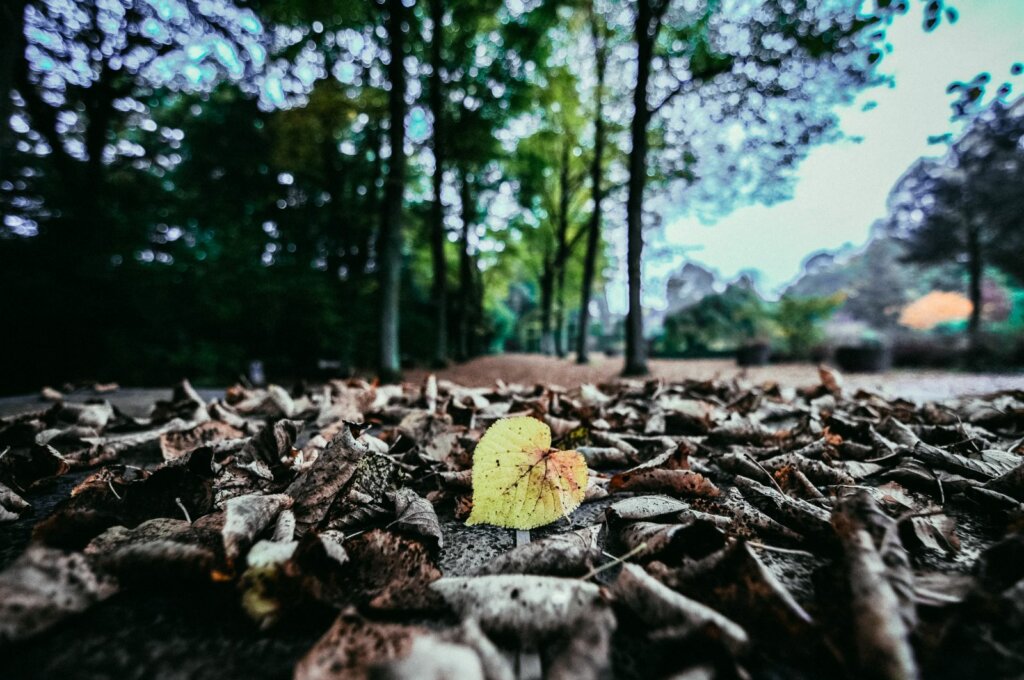
Death also has its place. Photo by davide ragusa on Unsplash
I kept trying new things, new ways of encouragement, new schedules, and even launching a Meetup group, but they all failed. Whereas some people have the story, “I meditated alone for six months, and then people started turning up,” my story is, “I meditated alone for three years, and then Covid happened and I tried meditating in the park and online with local people before giving up and doing that with people who live far away instead.”
In other words, even the first year of the pandemic didn’t deter me and frankly, it was only the allure of meditating with 20 people, albeit online, that was appealing enough that I was willing to give up trying to make a local group meditation happen. One of my life’s lessons isn’t perseverance, it’s knowing when to quit.
These days, I’m learning to quit old ways of thinking and being. The ground beneath me feels shaky as if I’m walking on the beach and the sand is shifting beneath my feet. I don’t know what the heck is going on and I’d like to go back to the way things were. I want to keep watering my metaphorical sow thistle and revive it but the message I’m getting is, “Let it die.”
Leaving behind the familiar is extremely difficult, especially when it used to work. A part of me says, “Wait, I don’t understand! It was working! Why can’t it work again??” but just like with the sow thistle, sometimes it doesn’t. Sometimes you do everything right, you haven’t changed your behavior at all, but the circumstances have. The outside world is different and that means you have to change too.
My spiritual teacher says, “Here in the universe, nothing is stationary, nothing is fixed. Everything moves; that’s why this universe is called jagat. Movement is its dharma; movement is its innate characteristic.”
I wish the universe didn’t keep moving, but it does, and that means I have to move with it. That means I have to let things die even when I really, really don’t want to.
I dream of a world where we understand nothing is static, stationary, or stale. A world where we understand this universe of ours is constantly moving and that means we must move too. A world where we recognize as painful as it may be, it’s important for us to let things die.
Another world is not only possible, it’s probable.
I’m currently in Washington, D.C. visiting friends and it feels surreal. I went to university here and am visiting my old stomping grounds. I half expect to run into my younger self on the street because the memories are so visceral. The ghost of young me is present in a way she hasn’t been on previous trips. Maybe it’s because my college friends and I are approaching 20 years of friendship, or because they all have kids of their own and I’m recognizing how much things have changed. Whatever it is, I’m acutely aware of something my spiritual teacher says.
“A 5-year-old child is transformed in due course into a 15-year-old boy,” he said. “In 10 years, the child becomes the boy. Thereafter, you will never be able to find the body of the 5-year-old child. So the child’s body has certainly died.” He then mentions the boy growing into a man, then hitting middle age, then old age, until he finally dies and says, “The rest of the changes we do not call death; but in fact, all the changes qualify as death.”
We don’t recognize them as such but all the changes we go through are a sort of death. We can’t find the people we used to be except in memory and that’s what I’m getting in touch with on this trip. I’m not the person I was and neither are my friends, but we all remember each other when we were 18. We tell stories about our past selves, the shenanigans we got up to, how we met, who dated whom, and what happened when.
It’s fun to reminisce but it truly feels like we’re talking about people that are dead, just like my spiritual teacher says. None of us are the same as we were. A part of me wants to go back in time to those college days when my friends lived within walking distance. I want to travel in a pack to coffee shops and restaurants, where we took over large tables and other patrons gave us the side eye for being so animated. These days my friends don’t all live within walking distance. And when we travel in a pack it’s because there are multiple children in tow, not because we’re a group of 10 going out for dinner.
To quote my spiritual teacher again, “This expressed universe is nothing but a collection of temporary entities which are undergoing constant metamorphosis according to the sweet will of nature.” We are all temporary entities and we are all constantly changing. Nothing stays the same. Nothing. I have some sadness about that and at the same time as I wind down this trip, I’m enjoying my stay, remembering who I was and how I felt. I’m appreciating that I do have 20 years of friendship under my belt and for a short time at least, I can say hello to 18-year-old Rebekah.
I dream of a world where we recognize we are all temporary entities undergoing constant change. A world where we understand that as we age, our past selves no longer exist. A world where we remember who we used to be and take the time to grieve for those small deaths while also appreciating who we are now.
Another world is not only possible, it’s probable.
Members of my community are at the age where they’re starting to die. It seems like every three months or so someone passes away. Some people I’m closer to than others, but regardless, each death leaves an impact.
Have you ever played that game where you stand in a circle and hold a piece of yarn while also throwing it to someone else in the circle? In the end, you wind up with a giant web that connects every person to everyone else. That’s what I think life is like. When someone dies, the metaphorical yarn is tugged and creates a ripple effect so everyone feels it, some more deeply than others. As for me, there are layers of grief. There’s the grief I feel from the person’s death, but there’s also the grief I feel for their family members, their friends, their colleagues. There’s up-close-and-personal grief and there’s also more removed grief.
In my spiritual community, we have a ceremony to honor the passing of people. It’s purely for the mourners, meaning we don’t believe the ceremony has any effect on the recently deceased person. One of the things we say in tandem is, “You have freed us today from all the social responsibility we bore toward our dearest so-and-so.” At one point we all pour water into our palms from the same pot and take a sip from our cupped hands. It’s the bookend to a baby naming ceremony.
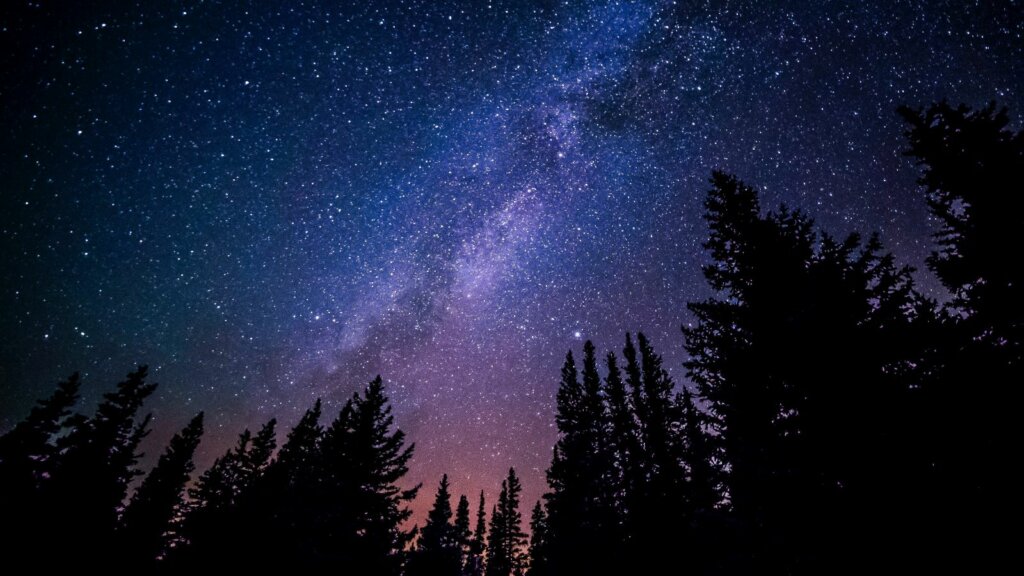
This picture will make sense later in the post. Photo by Ryan Hutton on Unsplash
With the baby naming ceremony, we are pledging responsibility to the baby symbolically by adding water into a tub, and with the mourning ceremony, we are taking it away. While the responsibilities are gone, the impact is not. Facebook is showing me pictures from a conference I used to go to in Vienna, Austria, every year. A few of those photos include Eric, a coworker who died years ago. It’s been many years since his passing, and we weren’t close, but every time I see his photo, my heart hurts a little, remembering he’s no longer with us.
I don’t have anything profound to say other than every person who is gone is not forgotten. We carry them with us in our hearts and they’re with us in another form. I’ll close here with an edited excerpt from writer and performer Aaron Freeman who in 2005 explained on NPR why you want a physicist to speak at your funeral:
“You want a physicist to speak at your funeral because they’ll explain to your grieving family about the conservation of energy, so they will understand that your energy has not died. You want the physicist to remind them about the first law of thermodynamics; that no energy gets created in the universe, and none is destroyed. All your energy, every vibration, every BTU of heat, every wave of every particle that was you remains in this world. The physicist will tell your mourners that all the photons that ever bounced off your face, all the particles whose paths were interrupted by your smile, by the touch of your hair, hundreds of trillions of particles, have raced off like children, their ways forever changed by you.
The physicist will them the warmth that flowed through you in life is still here, still part of all that we are, even as we who mourn continue the heat of our own lives. The physicist will explain to those who loved you that they need not have faith; indeed, they should not have faith. The physicist will let them know that they can measure, that scientists have measured precisely, the conservation of energy and found it accurate, verifiable, and consistent across space and time. Your energy’s still around. According to the law of the conservation of energy, not a bit of you is gone; you’re just less orderly.”
I dream of a world where we remember every person’s death creates a ripple on the spider web of life. A world where we understand a person may be gone, but they aren’t forgotten. A world where we remember when a person dies, their energy is still around us, and not a bit of the person is gone, they’re just less orderly.
Another world is not only possible, it’s probable.
October is a strange month in the Bay Area. I know in many parts of the U.S. the temperature is dipping, leaves are changing color, and people are eating soup for dinner. But in the Bay Area, October is a liminal month, straddling the line between summer and fall. Earlier this week I wore a t-shirt because the weather was so warm. Today I’m wearing a sweater because it’s foggy and slightly cold. However, later this month the temperature is expected to rise to the high 80s.
The temperature may designate summer but the sunlight spells fall. The light is changing, it’s getting darker earlier. Summer is gone and fall is coming, in that arena. However, because of the temperature, it feels like we’re not firmly in one season or the other. We’re in limbo. I don’t particularly enjoy limbo, whether that’s a season or a situation. I want to cross a threshold but how often does that happen? Isn’t most of life instead a transition? Aren’t we perpetually waiting for one thing to end and another to begin?
What I’m recognizing is the desire to be in one or the other doesn’t serve me. I’m not letting myself enjoy the current moment because I’m wishing things were different. This is akin to the “arrival fantasy.” The idea there will be a day when I have “arrived” in life. Said another way, it’s the “I’ll be happy when” myth. For instance, “I’ll be happy when it’s fall. I’ll be happy when I’m married. I’ll be happy when I get the promotion.” The “happy when” syndrome can last all the way until your deathbed.
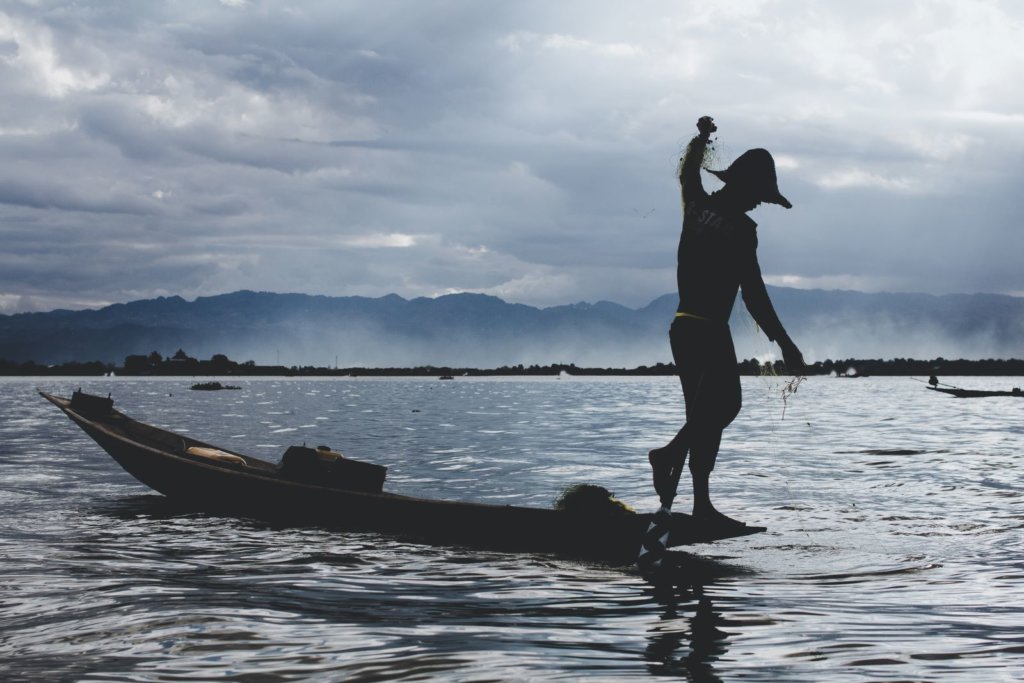
This picture will make sense as you keep reading. Photo by Michael Pfister on Unsplash
Clinical psychologist Dr. Natalia Peart says, “For decades, we’ve always thought that once we achieve success in our careers, then we’re supposed to get happy. And that once we get happy, we’re going to be fulfilled. That was the old path. So we’d ignore signs of burnout or the fact that our lives were so narrow because the assumption was that there would still be a reward of happiness. But that reward was always in the future. Happiness is now and being able to live in this moment, even in the harried, busy life that we live. You want to get up every day and know that there’s some level of meaning in the now – not two months or two years from now.”
One way we derive meaning in the now is by contending with death and recognizing even death doesn’t portend finality, but rather another beginning. This is well-captured in the story of the Skeleton Woman. Click the link for an animated version of the story, but the abbreviated version is this: A fisherman hooks a skeleton woman and not realizing she is caught on his line, tries to run from her. He bumps along the land with the woman on his tail and dives into his hovel thinking he’s safe. Alas, it is not so.
She is inside his home, limbs akimbo. In the candlelight, he takes pity on her, untangling her from his line, righting her limbs. Then he falls asleep and a tear leaks from the corner of his eye, which the Skeleton Woman drinks up thirstily. While he’s still sleeping, she pulls out his heart, holds it in her hand, and flesh is drummed back onto her bones. She becomes a human again. She returns his heart and then falls asleep next to him, and “that is how they awakened, wrapped one around the other, tangled from their night, in another way now, a good and lasting way.”
In order for us to thrive in relationships, our jobs, our everything, we must reckon with Lady Death, which is what the Skeleton Woman represents. We must act the way the fisherman does and welcome Lady Death into our homes, tend to her, make peace with her. Once we do that, there’s space for something new because every beginning is followed by an ending, which is followed by another beginning. And at the same time, instead of waiting for that new thing, as humans we are better served when we remember there is no arrival, there is no “happy when.” Like the fisherman untangling his line, living happens here, now, in limbo.
I dream of a world where we understand we’re always moving from one state to the next. A world where we recognize Lady Death is ever present even if we don’t acknowledge her, but she doesn’t represent the end, rather a new beginning. A world where we embrace the life/death/life cycle and get comfortable with transitions.
Another world is not only possible, it’s probable.
A little more than a year ago, I wrote a post called “Plants and People Need Pruning.” It was about letting go of relationships and recognizing it’s really hard for me. Part of the reason it’s hard is that all too often I don’t get a proper goodbye. The people that mattered to me – friends, partners, potential partners – just stopped talking to me. They were in my life one day and gone the next. Sometimes it wasn’t so dramatic. Sometimes they pulled a “slow fade” – gradually our communication became less and less until it disappeared altogether.
Some of my friends, especially the ones from college, I speak to on a less frequent basis because we live in different time zones, but I still consider them my friends. I understand relationships have ebbs and flows so this post isn’t about them, but rather the other relationships that are well and truly dead. Almost all of those relationships never received a proper goodbye.
When Gwyneth Paltrow and Chris Martin touted their conscious uncoupling, the public mocked them mercilessly. It sounded like a hokey thing made up by celebrities. So much ire and derision were spewed in their direction that Paltrow said, “The intensity of the response saw me bury my head in the sand deeper than I ever had in my very public life.” I suspect that’s because many people are uncomfortable with goodbyes and don’t know how to do them because it’s awkward or challenging. I understand. But push past that discomfort because a conscious uncoupling, or whatever you want to call it, can be a tremendous gift you give to yourself and someone else.
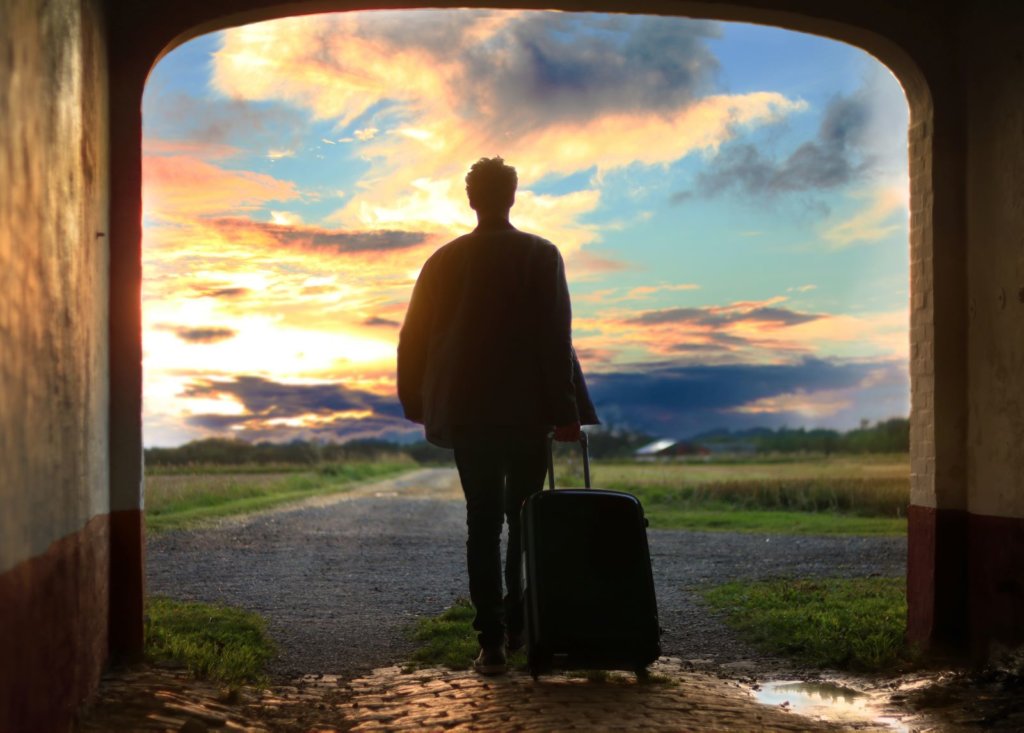
To say goodbye means to open to a new journey. Photo by Mantas Hesthaven on Unsplash
On Thursday, I said goodbye to my therapist/coach of eight years. This is a man I spoke with nearly every week. He knows everything about me and has seen me through soooo much. I’m not the same person I was as a result of our work together. However, I reached a point where I outgrew the need to see him every week. Instead of saying, “OK, bye, good luck with your life,” we had a termination session.
I told him all the things I appreciated about our time together, how I changed, what I will miss, and more. He did the same for me. I cried, a lot, but when we said goodbye, I didn’t feel an intense ache in my chest like I normally do. I didn’t feel hurt or wounded. I wasn’t left wondering if I matter to him or if he knows he matters to me. There were no question marks because we expressed it all. We honored our relationship and that’s exactly what I’ve been longing for all these years. It was healing to finally, FINALLY have a proper goodbye.
My spiritual teacher says, “A 5-year-old child is transformed in due course into a 15-year-old boy. In 10 years, the child becomes a boy. Thereafter, you will never be able to find the body of the 5-year-old child. So, the child’s body has certainly died.” He then goes on to mention the boy growing into a man, and then hitting middle age, then old age, until he finally dies and says, “The rest of the changes we do not call death; but in fact, all the changes qualify as death.”
If all changes qualify as death, why not hold little funerals for them? Why not grieve for them and give them proper homage and respect like we would for a no-longer-in-a-physical-body death? You might find that’s exactly what you need. I know I did.
I dream of a world where we say a proper goodbye to people. A world where we practice that not only for those on their deathbed but also for the living. A world where we lean into the possibly uncomfortable, awkward, or challenging situation of saying a conscious goodbye to someone because it’s beneficial for them and for us.
Another world is not only possible, it’s probable.
This weekend I had a small taste of what other people have been experiencing for the past year with this pandemic. Serenity, a cat I love and the closest I’ve come to a pet since I moved out of my parents’ house, died. Under normal circumstances, I would have been able to say goodbye to her in person but because of the pandemic, I said goodbye over Facetime.
I’m grateful I had the opportunity to say goodbye at all, but I would have much rather been able to pet her one last time. There are numerous crappy things about this pandemic but the worst, emotionally speaking, is the feeling of being alone. We already know this because we’ve experienced it ourselves, and I’m sure you’ve seen the news articles about the increase in mental health issues such as depression and anxiety during this pandemic. Grief is also something meant to be shared, and ideally in person. Online memorials and the like are better than nothing, but they’re not the same as in-person events.
I keep thinking about an article I read in the Atlantic nearly a month ago detailing Bhutan’s experience during this pandemic. It has me wondering, what would life be like in the U.S. if we followed Bhutan’s example? Would I have been able to say goodbye to Serenity in person?
As of late February, Bhutan only had one death from COVID-19. Not one death that day or week, one death period. Madeline Drexler writes nations like Bhutan, because there are others with low death rates, “offer plenty of lessons, from the importance of attentive leadership, the need to ensure that people have enough provisions and financial means to follow public-health guidance, and the shared understanding that individuals and communities must sacrifice to protect the well-being of all: elements that have been sorely lacking in the U.S.”
However, what struck me the most about the article is that the country made it possible for people to follow public-health guidance by providing economic and social support to those who need to quarantine or isolate. And furthermore, the king of Bhutan explicitly told government leaders that “even one death from COVID-19 would be too much for a small nation that regards itself as a family,” Drexler wrote.
Look, I know Bhutan is smaller than the U.S., that the politics are different, etc., but what would it feel like to have a sense we’re all in this together instead of every person being out for themselves? If the government just says “stay at home” but doesn’t offer support for doing so, we wind up with a situation like we currently have.
What would it be like if we all adopted Bhutan’s worldview that we’re one big family? That it was our responsibility to care for and protect our family members? How would we behave differently? I suspect it would be a much more enjoyable experience for us all.
I dream of a world where we care about ourselves and each other. A world where we recognize our actions have consequences even if they’re not readily apparent. A world where we remember we’re not alone even if it feels that way sometimes. A world where we embrace the idea we are one big family.
Another world is not only possible, it’s probable.
